Hearing that a music video director has just made their first feature film generally strikes fear into my heart. But in this instance, Geremy Jasper has done a pretty good job, directing a warm and quirky drama about a young woman from a working-class, chaotic family who dreams of being a famous rapper.
Patti Cake$ is an archetypal indie film, the kind that are acclaimed every year at the Sundance Film Festival by critics sated on Hollywood formula. It won a hefty distribution deal there from Fox mainly because it ticks all the right boxes – it's a character-driven tale told with considerable charm and has a personal backstory – drawn from the writer-director’s own youth growing up in gritty New Jersey and playing in a band.
Danielle Macdonald, with all her bulky charm, is utterly endearing as Patti
Patricia Dombrowski (Danielle Macdonald) aspires to reinvent herself as Killa-P or Patti Cake$ and storm the rap scene with her ingenious rhymes, but the cards are stacked against her. She’s very white, very overweight and very unsupported by her family. There’s an absent dad, a boozing mother with bad taste in boyfriends, and a dying grandmother; Patti is the breadwinner, working shifts in a deadbeat bar. Watching the Australian actress Macdonald who plays Patti swaggering down the street with her headphones on thinking she’s cool, we know that her bubble is due to be popped. Sure enough there are shouts of "Move it, Dumbo!" from a passing car because Patti is someone rarely encountered in the movies – an obese young woman, here owning the main role as opposed to providing comic relief.
Patti Cake$ isn’t simply a white version of Precious or a remake of 8 Miles, though it definitely echoes some of their themes.There’s a standout performance from Macdonald herself and some extraordinary scenes with Scorsese-veteran Cathy Moriarty as Patti’s grandmother who gets involved in her musical endeavours. Jasper's casting ticks a lot of diversity boxes to get the band together: the (gay?) best friend role goes to Siddharth Dhanajay, who works in a pharmacy and sings backing vocals.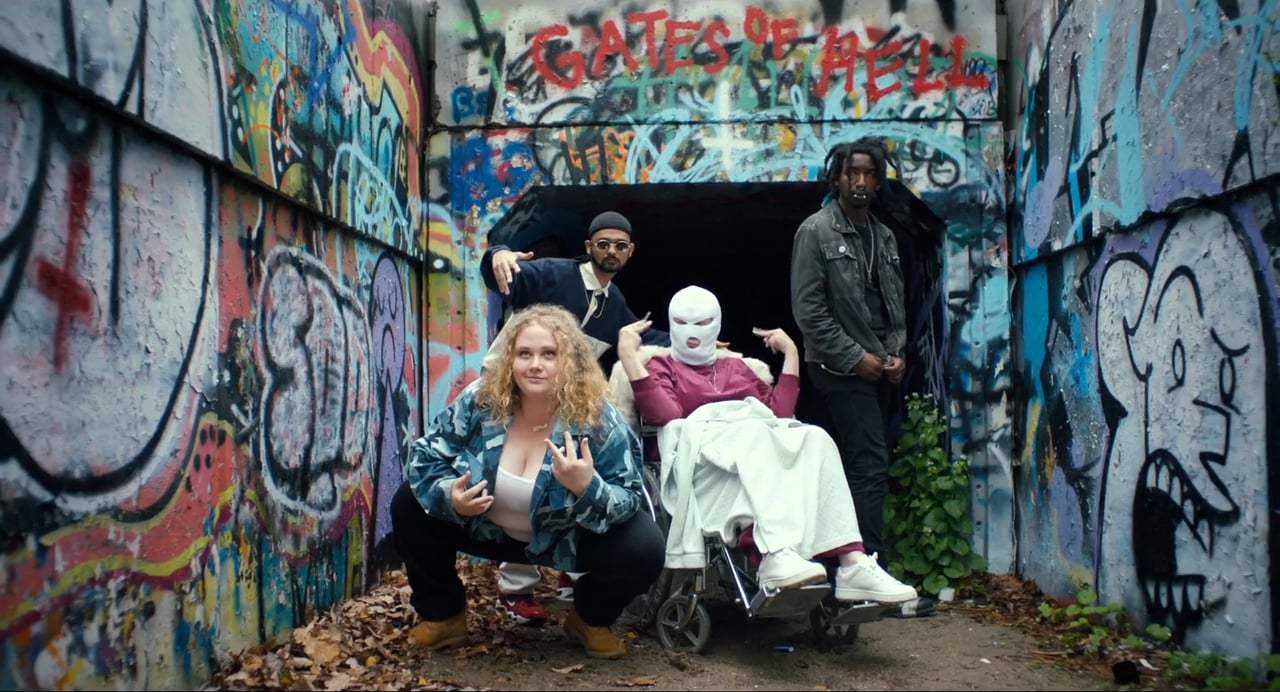 Then there’s the mysterious heavy metal-goth who lives in a shack in the woods near the cemetery. He barely talks but knows how to mix a track and play guitar. He says he’s the anti-Christ and calls himself Basterd; it goes with his white contact lenses à la Marilyn Manson. Basterd’s played by African-American actor Mamoudou Athie (last seen playing Grandmaster Flash in Baz Luhrman's hiphop saga, The Get Down). Basterd's character evolves and he becomes more than just a memeber of Patti’s band (pictured above).
Then there’s the mysterious heavy metal-goth who lives in a shack in the woods near the cemetery. He barely talks but knows how to mix a track and play guitar. He says he’s the anti-Christ and calls himself Basterd; it goes with his white contact lenses à la Marilyn Manson. Basterd’s played by African-American actor Mamoudou Athie (last seen playing Grandmaster Flash in Baz Luhrman's hiphop saga, The Get Down). Basterd's character evolves and he becomes more than just a memeber of Patti’s band (pictured above).
There’s some slightly clichéd mother-daughter confrontation scenes which are just about salvaged by the ferocity of Bridget Everett’s performance as mom. She's a singer who could have been a contender but is now a lush. Everett is better known as a raunchy cabaret performer and she can really belt out a power ballad at the karaoke bar; her musical style both clashes with and is incorporated into Patti’s band in a slightly hokey finale. This is not a perfect film, some of the plot twists are a little obvious while others defy credibility, but it's hugely enjoyable. There’s some inventive camerawork, excellent editing and a real sense that this is a story that comes from its creator’s heart. And Danielle Macdonald, with all her bulky charm, is utterly endearing as Patti.
Overleaf: watch the trailer for Patti Cake$




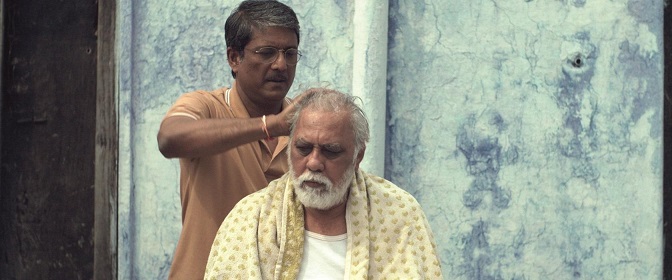 The other guests may be waiting for the end, but that doesn’t stop them enjoying more everyday routines, among which is an unlikely evening television show titled Flying Saucer. Daya establishes a particular bond with Vimla (Navnindra Behl), a widow who had accompanied her late husband here years ago and has stayed on ever since. There’s much affectionate humour in their interaction: there’s a moment when Daya appears to be on his deathbed, surrounded by mourners and musicians, with Vimla trying to catch his last words. “What did he say?” a musician asks. “That you sing in tune, please,” she replies.
The other guests may be waiting for the end, but that doesn’t stop them enjoying more everyday routines, among which is an unlikely evening television show titled Flying Saucer. Daya establishes a particular bond with Vimla (Navnindra Behl), a widow who had accompanied her late husband here years ago and has stayed on ever since. There’s much affectionate humour in their interaction: there’s a moment when Daya appears to be on his deathbed, surrounded by mourners and musicians, with Vimla trying to catch his last words. “What did he say?” a musician asks. “That you sing in tune, please,” she replies.

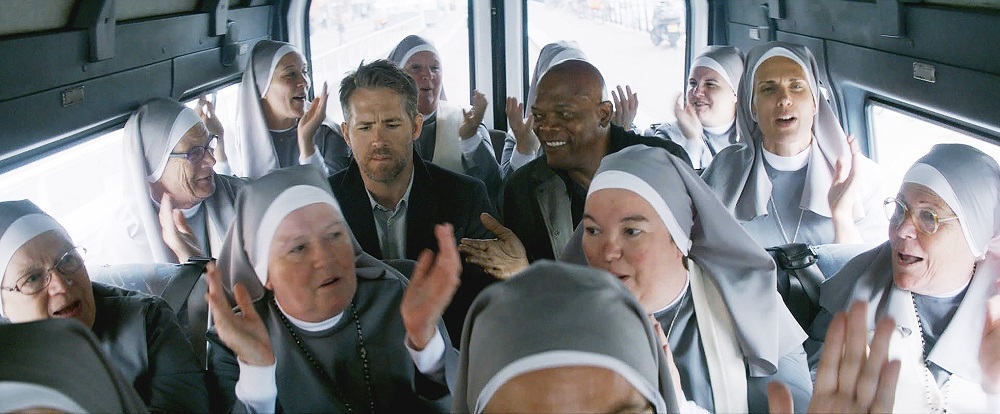 Throughout the film an iPod shuffle soundtrack is deployed drawn from the Grand Theft Auto playlist, turning every action sequence into an oh-so-ironic music video. Foreigner’s "I Want to Know What Love Is" plays out against slo-mo slaughter at a funeral (complete with flying canapés and corpses); grating heavy metal enhances torture by a tattooed henchman; Ram Jam’s version of "Black Betty" provides the earworm for a chain-choking scene in a hardware store. Unfortunately, in the wake of Baby Driver with its niftily executed marriage of music to action, The Hitman’s Bodyguard fails to hit any new beats.
Throughout the film an iPod shuffle soundtrack is deployed drawn from the Grand Theft Auto playlist, turning every action sequence into an oh-so-ironic music video. Foreigner’s "I Want to Know What Love Is" plays out against slo-mo slaughter at a funeral (complete with flying canapés and corpses); grating heavy metal enhances torture by a tattooed henchman; Ram Jam’s version of "Black Betty" provides the earworm for a chain-choking scene in a hardware store. Unfortunately, in the wake of Baby Driver with its niftily executed marriage of music to action, The Hitman’s Bodyguard fails to hit any new beats. 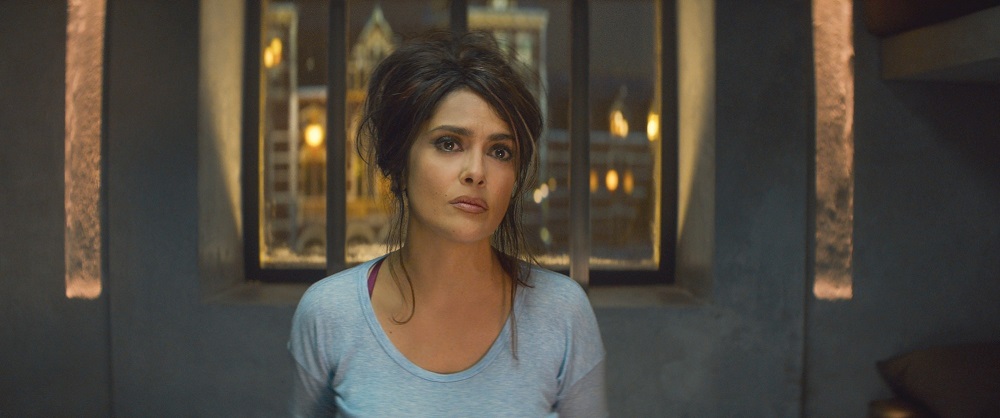 When not involved in chasing and shooting, the two leads settle down to lengthy exposition on their lives (cue a dirge-like flashback to formative childhood traumas designed to engender sympathy for Kincaid's career choice as paid killer). Our heroes debate their relative moral superiority: ‘Who is more wicked? He who kills the evil motherfuckers or he who protects them?’; but even more turgid is the endless banter about romance and Bryce's regrests about losing his Interpol sweetheart (Elodie Yung).
When not involved in chasing and shooting, the two leads settle down to lengthy exposition on their lives (cue a dirge-like flashback to formative childhood traumas designed to engender sympathy for Kincaid's career choice as paid killer). Our heroes debate their relative moral superiority: ‘Who is more wicked? He who kills the evil motherfuckers or he who protects them?’; but even more turgid is the endless banter about romance and Bryce's regrests about losing his Interpol sweetheart (Elodie Yung). 



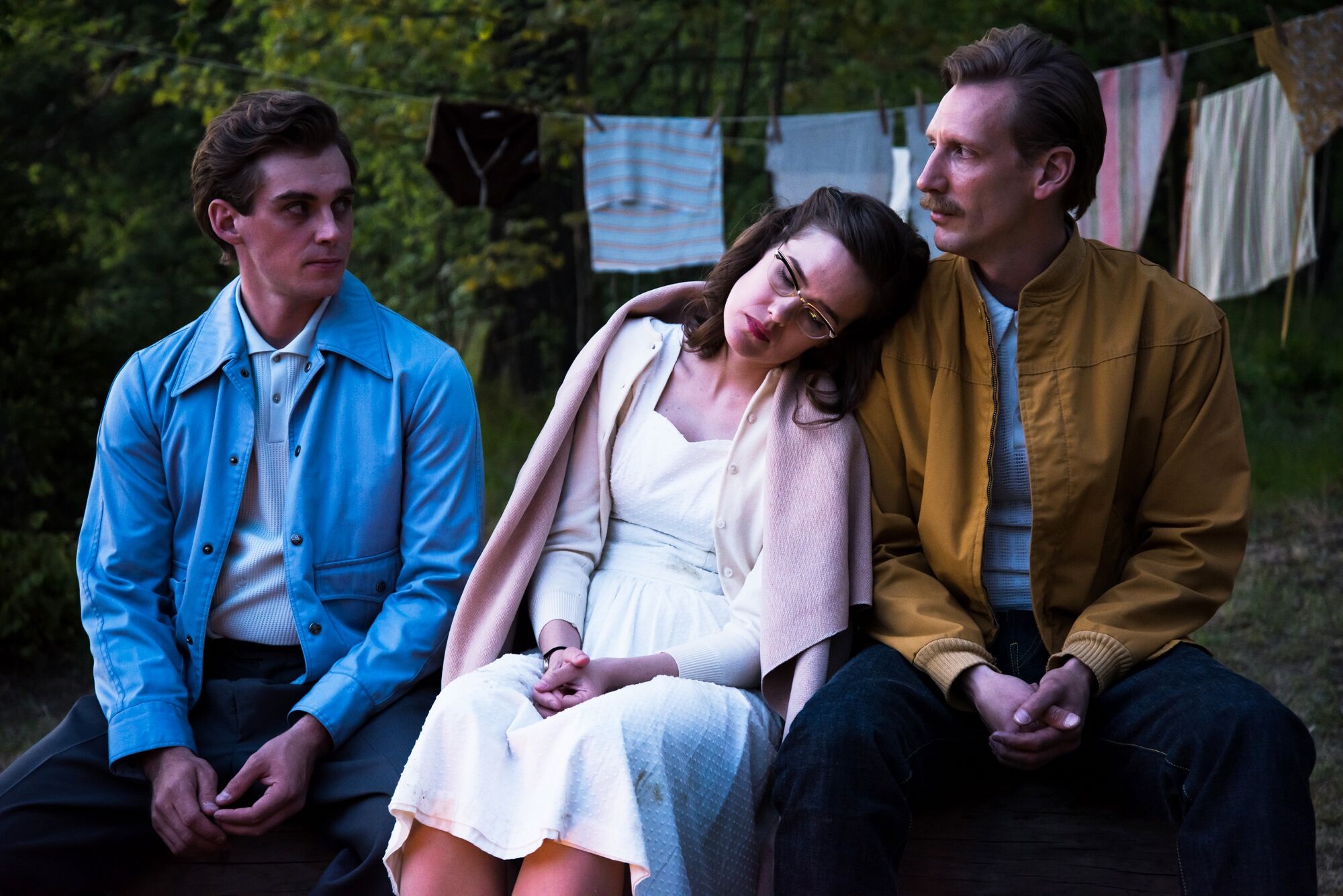 Designer Christian Olander portrays this dark Helsinki world through a palette of subdued colours, greys and blues (we only see the Finnish sun once, on a summer day out in the archipelago). Which also works just right in setting up the contrast to Tom’s first trip to California, with its bright colours and sheer enjoyment of physical beauty. First published in the mid-1950s in Physique Pictorial – the magazine was beginning to fascinate David Hockney at about the same time – the artist’s work was initiating a whole style of American gay life, one that, it feels, left Laaksonen himself with some catching up to do. He had, in every sense, arrived in another world.
Designer Christian Olander portrays this dark Helsinki world through a palette of subdued colours, greys and blues (we only see the Finnish sun once, on a summer day out in the archipelago). Which also works just right in setting up the contrast to Tom’s first trip to California, with its bright colours and sheer enjoyment of physical beauty. First published in the mid-1950s in Physique Pictorial – the magazine was beginning to fascinate David Hockney at about the same time – the artist’s work was initiating a whole style of American gay life, one that, it feels, left Laaksonen himself with some catching up to do. He had, in every sense, arrived in another world.